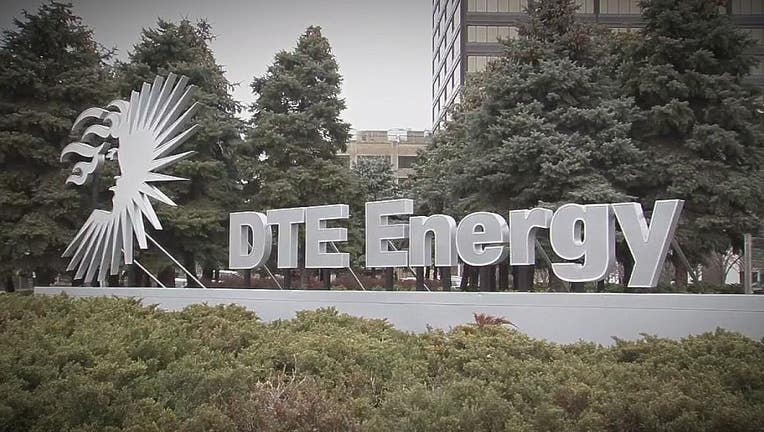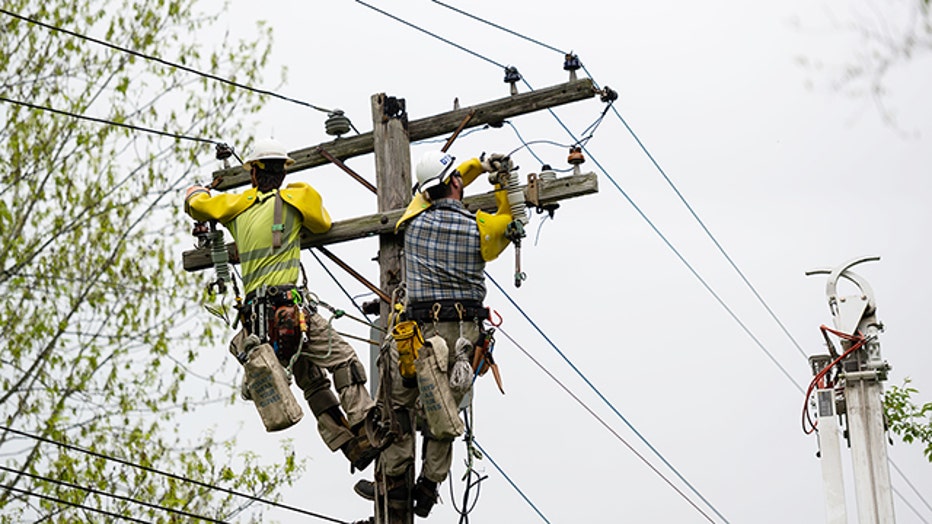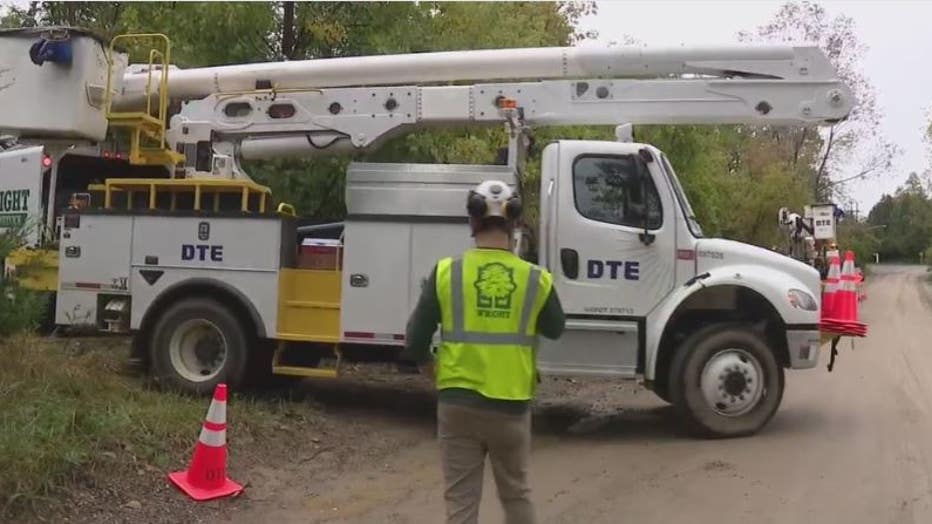DTE utility rate hike of $368M approved by Michigan Public Service Commission

FOX 2 (WJBK) - The Michigan Public Service Commission approved a $368 million rate increase for customers of DTE Electric Co. on Friday.
Today’s approval of a $368,115,000 rate increase, a typical residential customer who uses 500 kilowatt hours of electricity per month will see an increase of $6.51, or 6.38%, on their monthly bill. The new rates will take effect Dec. 15.
The regulatory commission said that the vote to approve the rate increase is 40 percent less than the $622 million that DTE Energy originally wanted to fund its planned infrastructure investments to boost reliability and speed up deployment of clean energy.
DTE Energy says that the average customer's bill will be impacted by $3.15 per month, due to a recent reduction in rates.
"Our team worked through the math. Offset by a $300 million reduction in fuel and other costs, the average DTE residential customer will see a bill increase of 11 cents per day to support needed investments ($3.15 per month)," said a DTE Energy communications member.
But Michigan United, a grassroots watchdog group responded by calling the commission "toothless" and said that the body - which is appointed by Gov. Gretchen Whitmer - continues to reward the company's poor performance.
"The Michigan Public Service Commission has demonstrated yet again that it is not up to the task of regulating our state’s utilities. Despite years of sustained public outcry against DTE’s unreliable and unaffordable service, just in time for the holidays, the regulatory body has gifted the company yet another rate increase, while Michiganders are getting coal in the form of a bigger bill," said EM Perry, from Michigan United in a release.
DTE Electric’s last rate increase was granted in November 2022, when the MPSC approved a $30,557,000 increase, a 90% reduction from the $388 million the utility had requested, for a total increase over a two-year period of 7.16%. Over this same two-year period, the US annual inflation rate averaged 6.4%.
DTE Electric serves 2.3 million customers in southeast Michigan.
DTE requested a return on equity of 10.25% and a 50%-50% debt-to-capital structure. Today’s order approves the requested debt-to-capital ratio and sets a return on common equity of 9.9% and an overall rate of return of 5.56% on a jurisdictional rate base of $22,150,952,000.
The Commission approved an additional $2 million in funding for DTE Electric’s pilot project to provide $1,500 rebates for income-eligible households for the purchase of electric vehicles costing $50,000 or less, promoting greater affordability in EV adoption.
The Commission also approved DTE Electric’s request to accelerate the utility’s ongoing tree trimming surge to clear trees and branches from around power lines as fallen trees and branches are the leading cause of outages in Michigan.
The Commission also directed DTE to work with MPSC Staff to study tree trimming on residential service drops — the electric lines between power poles and homes. Maintaining clearance around these service drops is typically the responsibility of homeowners it can impact on the length of outages. The Commission directed DTE Electric to develop a proposal for residential service-drop tree trimming pilot in its next general rate case.
Perry and his group called out the Michigan Public Service Commission's funding - which partially comes from the energy companies themselves.
"Given that most of our state’s legislators take contributions from DTE and Consumers Energy, and that a majority of MPSC funding comes from these same companies, where should Michiganders direct their calls for accountability?" Perry said. "Utility company money is polluting every corner of this state’s democracy. In the pursuit of a fair and transparent regulatory framework, Michiganders should rally behind efforts to restrict the sway of utility companies by advocating for the prohibition of political contributions from entities with government contracts, thereby fortifying the democratic foundations of our state. Michigan United is preparing to take that fight to Lansing."

Other aspects of today’s order include:
The Commission approved a 2-year investment recovery mechanism (IRM) that is designed to help track investments in DTE Electric’s distribution system and ensure continued investment in the distribution grid to improve reliability and resilience.
These investments total more than $350 million and will be made in 2024-2025 toward circuit conversions, sub-transmission redesign and rebuild, breaker replacement, underground residential distribution replacements, and 4.8 kilovolt (kV) circuit automation.
The Commission limited the IRM’s timeframe to 2 years so that it can be adjusted to include findings of a distribution system audit now underway — the first time the Commission has ordered such a broad, top-to-bottom assessment of the distribution systems of Michigan’s two largest electric utilities.
A final report is expected by late summer 2024 on the results of the independent, third-party audit, which is examining all equipment and operations of the electric distribution systems of DTE Electric and Consumers Energy Co. Partial approval of the IRM maintains the Commission’s focus on ensuring funding for needed reliability improvements while allowing room for adjustment.
Money spent on these costs must be reconciled in a future case that will assess the reasonableness and prudence of the utility’s expenditures, and the reconciliation will ensure funds approved for these programs are spent on those programs, or else be refunded to customers.
The Commission also approved funding for the company’s strategic capital program to improve reliability and modernize the grid. Noting safety issues with abandoned arc wire in Detroit, the Commission approved funding for DTE Electric’s efforts to harden the city’s 4.8 kV grid.
Addressing the company’s planned reliability and resilience investments, the Commission directed DTE Electric to:
- Include annual metrics on inspection and testing of pole and pole-top maintenance and reporting.
- Implement MPSC Staff recommendations for ensuring reliability efforts address the needs of vulnerable communities in the company’s distribution plan case.
- Increase transparency in how distribution grid investments are selected and prioritized.
The MPSC ordered DTE Electric to conduct a study examining the impact of its on-peak rate structure on low-income customers before they are transitioned to the new time-of-day rates. With time-of-day rates DTE implemented in March 2023, customers are charged more for electricity weekdays from 3 p.m. to 7 p.m. between June and September. Electricity demand is at its highest during these times, and the additional power is typically at its most expensive to produce.
The Commission also directed DTE Electric to work with MPSC Staff and stakeholders to develop a detailed regression analysis of customer demographics and reliability for vulnerable communities to be used in the company’s distribution plan case.
The Commission approved $9 million requested by DTE Electric for its planned 220-megawatt Trenton Channel Battery project, which the Commission approved in the utility’s integrated resource plan in Case No. U-21193.
The Commission disallowed costs in a number of areas, including $346 million in capital costs and $133 million in information technology costs that the Commission found were insufficiently justified. The Commission also disallowed $59.6 million in avoidable capital expenses associated with the company’s planned retirement in 2028 of units 3 and 4 at its coal-fired Monroe Power Plant.
The Michigan Public Service Commission is made up of Dan Scripps, Katherine Peretick, Alessandra Carreon.
To learn more about the MPSC or to contact them, click here.


